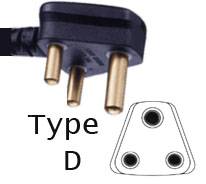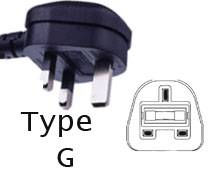Dominica, often referred to as the “Nature Island of the Caribbean,” is a pristine gem in the Lesser Antilles known for its lush rainforests, dramatic waterfalls, and volcanic landscapes. This rugged island offers travelers a wealth of outdoor adventures, from hiking through tropical forests and exploring boiling lakes to snorkeling in crystal-clear waters and relaxing in natural hot springs. With its rich biodiversity and unspoiled beauty, Dominica is a paradise for nature lovers and adventure seekers alike.
Ultimate Dominica Travel Guide
Destinations
Best time to go
The best time to visit Dominica is during the dry season, which runs from December to May. During this time, the weather is generally sunny and dry, with lower humidity and minimal rainfall, making it ideal for outdoor activities and sightseeing. The wet season, from June to November, brings higher temperatures and occasional rainfall, but it also offers lush landscapes, fewer tourists, and lower prices. Keep in mind that Dominica is located in the hurricane belt, so travelers should monitor weather forecasts during the hurricane season.
Average Temperature By Month
January: 26°C (79°F)
February: 26°C (79°F)
March: 26°C (79°F)
April: 27°C (81°F)
May: 27°C (81°F)
June: 28°C (82°F)
July: 28°C (82°F)
August: 28°C (82°F)
September: 28°C (82°F)
October: 28°C (82°F)
November: 27°C (81°F)
December: 27°C (81°F)
What To Expect
Time Zone:
Dominica operates on Atlantic Standard Time (AST) year-round, which is 4 hours behind Coordinated Universal Time (UTC-4). However, Dominica does not observe daylight saving time.
Currency:
The official currency of Dominica is the Eastern Caribbean Dollar (XCD), although US dollars (USD) are widely accepted, especially in tourist areas. Credit cards are also commonly used, but it's advisable to carry cash for smaller purchases and when visiting local markets and establishments.
Language:
English is the official language of Dominica and is spoken by the majority of the population. Additionally, Creole (Kwéyòl) is widely spoken as a secondary language, particularly in informal settings and rural areas.
Airport:
Douglas-Charles Airport (DOM), located on the northeast coast of Dominica near the town of Marigot, is the main airport serving the island. The airport offers connections to other Caribbean islands and regional flights to Puerto Rico and the United States.
How To Get Around
Rental Cars: Renting a car is a popular way to explore Dominica independently, with well-maintained roads and relatively easy navigation. Several car rental agencies operate at the airport and in major towns, offering a range of vehicles from compact cars to SUVs.
Taxis: Taxis are readily available in Dominica and can be found at the airport, hotels, and tourist attractions. Fares are typically fixed based on destination, but it’s advisable to confirm the fare with the driver before starting your journey.
Public Transportation: Dominica’s public bus system provides affordable transportation between towns and villages, but schedules may be limited, especially in rural areas. Buses are often crowded and may not operate on Sundays or public holidays.
Hiking: Many of Dominica’s attractions, such as waterfalls, hot springs, and nature trails, are accessible by foot. Guided hikes are available for various skill levels, from leisurely walks to challenging treks, allowing visitors to experience the island’s natural beauty up close.
Average Temperature By Month:
January: 26°C (79°F)
February: 26°C (79°F)
March: 26°C (79°F)
April: 27°C (81°F)
May: 27°C (81°F)
June: 28°C (82°F)
July: 28°C (82°F)
August: 28°C (82°F)
September: 28°C (82°F)
October: 28°C (82°F)
November: 27°C (81°F)
December: 27°C (81°F)
Plugs:
The standard voltage in Dominica is 230 volts AC, with a frequency of 50Hz. The most commonly used plug types are Type D and Type G. Type D plugs have three round pins in a triangular pattern, while Type G plugs have three rectangular pins in a triangular pattern. It's advisable to bring a universal adapter if your devices have different plug types.
VPN:
Access to certain websites and online services may be restricted in Dominica. Consider using a virtual private network (VPN) to securely access the internet and bypass any censorship restrictions.
Safety:
Dominica is considered a safe destination for travelers, with a low crime rate and a welcoming local population. However, it's essential to take standard precautions to ensure your safety and well-being during your visit. Be mindful of your belongings, particularly in crowded tourist areas and when using public transportation. Avoid walking alone in isolated or poorly lit areas at night, and be cautious when withdrawing money from ATMs. Additionally, follow local laws and regulations, respect cultural customs, and be aware of your surroundings.
Credit Cards and Banks
Credit Cards:
Credit card acceptance in Dominica is limited outside of major hotels, restaurants, and larger businesses. Visa and MasterCard are the most commonly accepted cards, but it’s advisable to carry enough cash for your stay, especially if you plan to visit more remote areas or smaller establishments.
ATMs:
ATMs are available in major towns and tourist areas throughout Dominica, allowing you to withdraw Eastern Caribbean Dollars (XCD). Roseau, the capital of Dominica, and popular tourist spots like Portsmouth and Scotts Head have a few ATMs. However, it’s recommended to carry enough cash for smaller establishments and when visiting more remote areas, as ATM availability may be limited.
Currency Exchange:
The official currency of Dominica is the Eastern Caribbean Dollar (XCD). US dollars are widely accepted in tourist areas, but it’s advisable to have Eastern Caribbean Dollars for transactions outside of these areas. You can exchange major foreign currencies at banks, currency exchange bureaus, and some hotels.
Banks:
Major banks in Dominica include:
- National Bank of Dominica: The largest bank in Dominica, National Bank of Dominica offers a range of banking services including savings accounts, loans, and foreign exchange.
- Royal Bank of Canada (RBC): Another prominent bank in Dominica, RBC provides various banking products and services for individuals and businesses.
Traveler’s Checks:
Traveler’s checks are becoming less common worldwide, and their usage is limited in Dominica. It’s recommended to carry cash or use credit/debit cards for transactions. However, some banks may still offer services for cashing traveler’s checks.
Tips for Banking in Dominica:
- Notify your bank before traveling to Dominica to inform them of your travel plans and avoid any issues with card usage abroad.
- Keep your PIN and card information secure, and be cautious when using ATMs, especially in secluded areas or at night.
- Carry small denominations of Eastern Caribbean Dollars or US dollars for smaller purchases, as change may be limited.
- Familiarize yourself with the current exchange rate to ensure fair transactions when exchanging currency.
By understanding the banking system in Dominica, you can ensure a smooth and hassle-free financial experience during your travels in the country.
Locations
Dominica
TRAVEL FACTS
US State Dept Travel Advisory
The US Department of State currently recommends US citizens exercise normal precautions in Dominica.
https://travel.state.gov/content/travel/en/traveladvisories/traveladvisories.html
Passport/Visa Requirements
For the latest passport and visa requirements for this country, please consult the U.S. State Department’s “Learn About Your Destination” search tool, available through the link below.
US Embassy/Consulate
US does not have an embassy in Dominica; the US Ambassador to Barbados is accredited to Dominica; US citizens may call US Dept of State (202)-501-4444 for emergencies; alternate contact is the US Embassy in Barbados [1] (246) 227-4000; US Embassy in Bridgetown, Wildey Business Park, St. Michael BB 14006, Barbados, WI; https://bb.usembassy.gov/
LGBTQIA+ Travelers
Telephone Code
1-767
Local Emergency Phone
999
Vaccinations
The CDC and WHO recommend the following vaccinations for Dominica: hepatitis A, hepatitis B, typhoid, yellow fever, rabies, meningitis, polio, measles, mumps and rubella (MMR), Tdap (tetanus, diphtheria and pertussis), chickenpox, shingles, pneumonia, influenza, COVID-19.
Climate
Tropical; moderated by northeast trade winds; heavy rainfall
Currency (Code)
Eastern Caribbean dollars (XCD)
Electricity/Voltage/Plug Type(s)
230 V / 50 Hz / plug types(s): D, G


Major Languages
English, French patois
Major Religions
Roman Catholic, Protestant, Jehovah’s Witness, Rastafarian
Time Difference
UTC-4 (1 hour ahead of Washington, DC, during Standard Time)
Potable Water
Opt for bottled water
International Driving Permit
Suggested; additionally, traveler will need to present their US driver’s license & IDP to local police to pay a special registration fee
Road Driving Side
Left
Tourist Destinations
Boiling Lake; Morne Trois Pitons National Park; Titou Gorge
Major Sports
Cricket, soccer
Cultural Practices
Greetings such as “good morning” or “good afternoon” are the most basic form of social interaction. People are expected to greet when they telephone, visit someone’s home, or simply pass one another on the street.
Tipping Guidelines
Tips of 10% are expected at restaurants unless service charges are added. It is appropriate to tip a housekeeper $1-2 (USD) per night for good service.
Souvenirs
Grass and reed rugs and bags, Carib baskets, herbs and spices, pottery, jewelry, coconut items, rum
Traditional Cuisine
Mountain Chicken (historical dish) — snares of the legs of the now endangered Crapaud frog; more recently Calalloo Soup – a soup made from the leaves of the dasheen plant, other vegetables, and meat
Please visit the following links to find further information about your desired destination.
World Health Organization (WHO) – To learn what vaccines and health precautions to take while visiting your destination.
US State Dept Travel Information – Overall information about foreign travel for US citizens.
To obtain an international driving permit (IDP). Only two organizations in the US issue IDPs:
American Automobile Association (AAA) and American Automobile Touring Alliance (AATA)
How to get help in an emergency?
Contact the nearest US embassy or consulate, or call one of these numbers:
from the US or Canada – 1-888-407-4747 or from Overseas – +1 202-501-4444
Central Intelligence Agency.
The World Factbook.
/the-world-factbook
(May 8, 2024)



